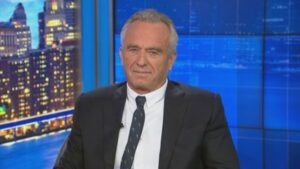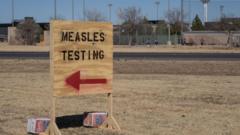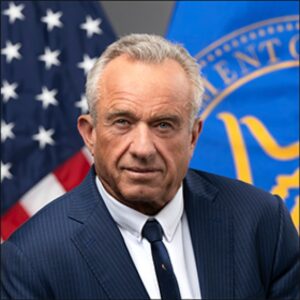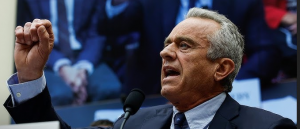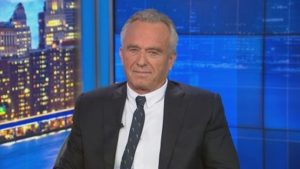The controversy highlights serious questions around the integrity and accuracy of governmental health reporting, prompting calls for accountability.
US Health Report Under Fire for Fabricated Sources, Academics Claim

US Health Report Under Fire for Fabricated Sources, Academics Claim
A US government report on children's health has come under scrutiny for citing non-existent studies, revealing critical concerns from academics involved.
The US government has issued a report detailing the "chronic disease crisis" facing children, but its credibility has crumbled as experts named in the document claim they are associated with research that does not exist. Originally released on May 22, the report from the Department of Health led by Secretary Robert F Kennedy Jr. highlighted causes of chronic illnesses among children. An amended version was made available shortly after digital outlet NOTUS flagged the inclusion of seven fictitious sources.
Press Secretary Karoline Leavitt attributed discrepancies in the report to "formatting issues," asserting that these errors do not alter the core findings. The report emerged following one of President Donald Trump’s expansive executive orders aimed at probing the "childhood chronic disease crisis" for underlying factors.
The Make America Healthy Again Commission spearheaded the report, which attributed rising chronic illnesses to various factors including poor diets, environmental toxins, high stress levels, lack of physical activity, and the phenomenon of “overmedicalisation.” However, multiple academics acknowledged their names were erroneously listed as authors of studies within the report, insisting the referenced studies were entirely fabricated.
Among the academics, Guohua Li of Columbia University stated that the alleged report cited regarding children's mental health during the pandemic was "totally fabricated," while fellow researcher Noah Kreski echoed similar concerns, asserting the supposed study did not exist. Concerns over citation integrity were voiced by epidemiology professor Katherine Keyes, who emphasized that such practices are essential in maintaining rigorous scientific research.
Furthermore, another study cited in the report concerning psychotropic medications for youth was incorrectly attributed, with the represented university confirming that the individual named did not author the work. The Democratic National Committee has condemned RFK Jr.'s Health Department for allegedly attempting to legitimize its policies with "non-existent" sources, pointing out numerous errors, including broken links and misrepresented conclusions.
Robert F Kennedy Jr. assumed his role as US Health Secretary in February, where he has since made significant staffing cuts and proposed introducing placebo trials for new vaccines, raising additional concerns among public health advocates.
Press Secretary Karoline Leavitt attributed discrepancies in the report to "formatting issues," asserting that these errors do not alter the core findings. The report emerged following one of President Donald Trump’s expansive executive orders aimed at probing the "childhood chronic disease crisis" for underlying factors.
The Make America Healthy Again Commission spearheaded the report, which attributed rising chronic illnesses to various factors including poor diets, environmental toxins, high stress levels, lack of physical activity, and the phenomenon of “overmedicalisation.” However, multiple academics acknowledged their names were erroneously listed as authors of studies within the report, insisting the referenced studies were entirely fabricated.
Among the academics, Guohua Li of Columbia University stated that the alleged report cited regarding children's mental health during the pandemic was "totally fabricated," while fellow researcher Noah Kreski echoed similar concerns, asserting the supposed study did not exist. Concerns over citation integrity were voiced by epidemiology professor Katherine Keyes, who emphasized that such practices are essential in maintaining rigorous scientific research.
Furthermore, another study cited in the report concerning psychotropic medications for youth was incorrectly attributed, with the represented university confirming that the individual named did not author the work. The Democratic National Committee has condemned RFK Jr.'s Health Department for allegedly attempting to legitimize its policies with "non-existent" sources, pointing out numerous errors, including broken links and misrepresented conclusions.
Robert F Kennedy Jr. assumed his role as US Health Secretary in February, where he has since made significant staffing cuts and proposed introducing placebo trials for new vaccines, raising additional concerns among public health advocates.




